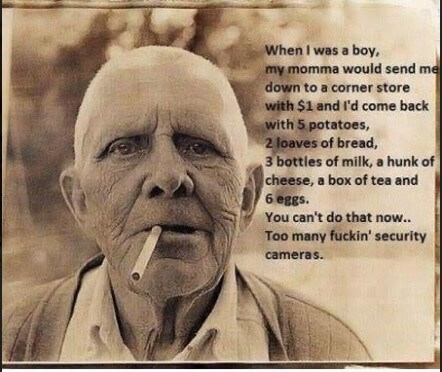Yesterday I stood on a step ladder to change a ceiling floodlight. The packaging said my new LED light would last fifteen years if it was used 8 hours a day. Doing some quick math, I realized this floodlight would probably outlive me. I decided to install an old incandescent bulb instead.
For the third time on the same day, I misplaced my reading glasses. After a systematic but fruitless search, I asked my wife to help. She points to my shirt pocket where the glasses sit, silently mocking me. I start to berate them for playing games but the wife interrupts. “Really? Now you’re arguing with your reading glasses? What’s next, singing along with the toaster?” Hmmm, sounds like fun.
At a party, I’m asked to name the best actor of the 1950s. I immediately focus on the lead actor in “On the Waterfront,” whose name I just cannot recall. Marvin Blanda? Martin Branca? As the seconds tick by, I finally blurt out, “The Godfather Guy!”
A young lass asks me what I think of Kendrick Lamar’s latest blasts “which just dropped.” After scanning the floor in every direction, I admit I can’t find them.
On a weekly Zoom call with three of my far-flung buddies, whom I’ve known since high school, I ask, “Refresh my memory, did we ever serve in the Army together?”
Back at the party, I’m asked what it was like to grow up in the 1950s: “Not often recognized,” I pontificate, “radio back then was an interactive medium: if you didn’t like a song, you turned the dial. You could also multitask with it by adjusting the volume as you fiddled with the dial.”
As I step off the curb at corner STOP signs, cars screech to a halt (as for those scooters and bikes that speed up instead, almost knocking me over, thanks for making me feel young, guys!)
Some folks will stand up to offer me a seat on the subway, obviously wanting to honor the wisdom I seem to exude in my antiquity, but 40-somethings swoop in before I can move, validating my self-image as a disrespected Gen-X dude.
Getting off a long flight at JFK, my bones aching from sitting scrunched-up for hours, there’s an attendant standing on the gangplank or whatever they call it, standing behind an empty wheelchair.
“Do you need assistance sir?” he asks, moving the wheelchair forward a few inches.
“No!”
“Are you sure?”
“Oh, what the hell, OK.”










